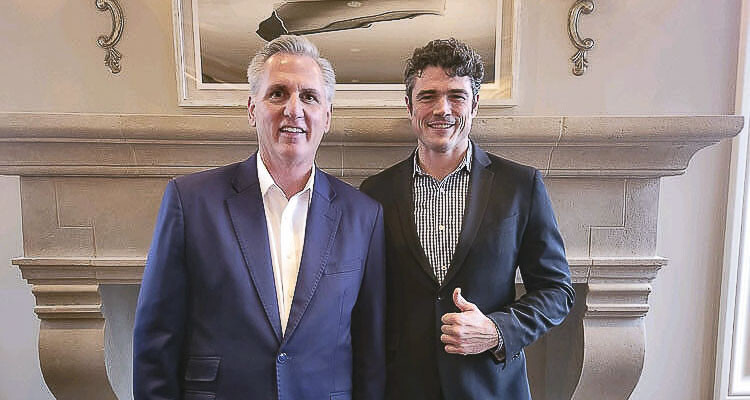
California representative fell short in rounds of voting across several days this week as a small group of conservative Republicans remained steadfast in opposing him
California Republican Kevin McCarthy was elected Speaker of the U.S. House early Saturday after the 15th round of voting and a week of turmoil and nonstop negotiations.
McCarthy received 216 votes to 212 for Democrat Hakeem Jeffries, with five voting present. The five voting present lowered the threshold for the 218 votes that McCarthy would have needed if everyone voted.
Just a couple hours earlier, McCarthy fell one vote short of becoming the next speaker of the U.S. House in the 14th round of voting.
McCarthy fell short in rounds of voting across several days this week as a small group of conservative Republicans remained steadfast in opposing him, but Saturday morning’s final ballot won him the position.
Conservative members in the House laid out conditions for McCarthy ahead of the votes. Those conditions included a promise to vote on a balanced budget, the “Texas Border Plan,” term limits for members of Congress, and the Fair Tax Act, which would create a national sales tax on certain services and property to replace the current income tax, payroll taxes, and estate and gift taxes.
This is just the 15th time in the country’s history it’s taken multiple votes to elect a speaker. From 1793 to 1925, from the 3rd to the 68th Congress, there were 14 instances when it took multiple ballots to elect a speaker, the Historian’s office notes. Among them, 13 occurred before the Civil War, “when party divisions were more nebulous.”
“The last time a Speaker election required two or more votes on the floor happened in 1923,” the office states. It also notes that the House “has filled vacancies in the Speakership three times using a resolution.”
This report was first published by The Center Square.
Also read:
- Letter: ‘We’re going to give them some money and a plane ticket, and then we’re going to work with them’Camas resident Anna Miller supports a new structured self-deportation policy, calling it a balanced approach to immigration and economic needs.
- Pro-Palestinian protesters occupy UW building, 30 arrestedAbout 30 protesters were arrested at the University of Washington after occupying a building and demanding the school cut ties with Boeing.
- Sen. Braun praises UW officials for response to Monday protests, calls for prosecutionsSen. John Braun praised UW officials for their firm response to violent protests tied to the university’s relationship with Boeing.
- Largest parade in Southwest Washington bands together for a better tomorrowThe 59th annual Parade of Bands in Hazel Dell will feature 24 high school bands and more than 120 entries on May 17.
- Don’t leave tax dollars on the table; learn about county’s tax exemption program at May 16 event in WashougalClark County tax exemption specialists will assist seniors and people with disabilities during a May 16 event in Washougal.
- Trades Tuesday is here, hoping to become a trend in area schoolsA new campaign is launching in area schools to inspire students to consider careers in the trades.
- Opinion: What the 2025 legislature tells us about why Washington’s government keeps failingTodd Myers of the Washington Policy Center argues that Washington’s government fails because it resists humility, experimentation, and accountability in its policymaking.











